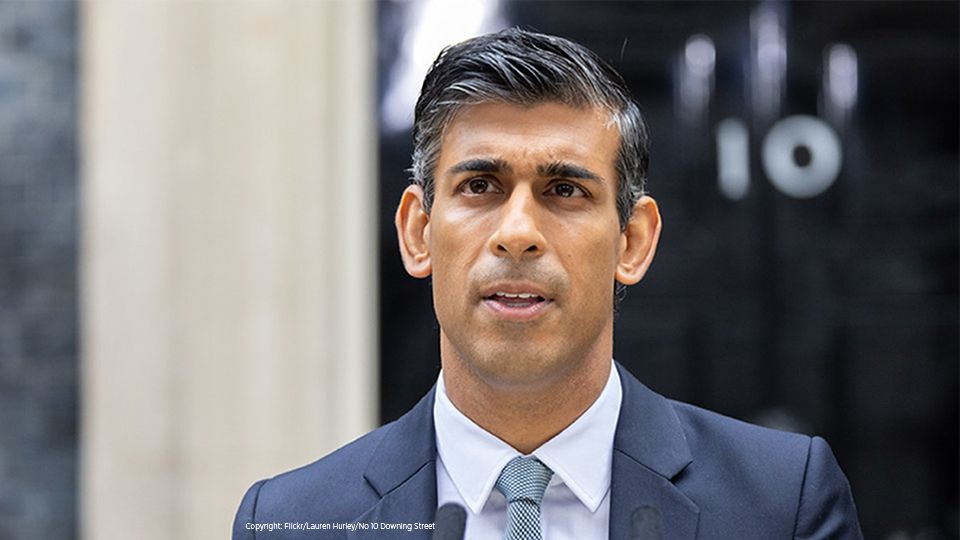Investment groups representing £1.5trn in assets have issued a ‘warning letter’ to the UK prime minister saying the government’s recent rhetoric is at risk of undermining confidence in its net-zero ambition, and its place as world leader in sustainable finance.
The UK Sustainable Investment and Finance Association (UKSIF) has coordinated the letter to PM Rishi Sunak, signed by 36 of its member firms including Jupiter Asset Management, Scottish Widows, Aegon and Royal London, which questions the government’s commitment to tackling climate change given recent updates.
See also: – UK needs comprehensive net-zero investment plan
“Recent public debates have cast doubt on the UK’s 2030 phase-out of new petrol and diesel cars and 2035 phase-out of gas boilers,” the letter stated, “while the reforms to the UK’s carbon markets, energy efficiency standards for the private rented sector, and plans to issue new oil and gas licences in the North Sea all cast uncertainty on government’s commitment to the UK’s near and longer-term climate targets.”
It said the government’s recent public statements and policy signals risk undermining the UK’s leadership in its commitment to net zero and “this shift blurs regulatory visibility for investors and risks the ability of the finance sector to make the large-scale, transformative investments required to accelerate net-zero delivery and unlock growth in the UK.”
The investment firms are calling for more clarity on future objectives and mechanisms particularly around the £50-60bn per year of investment needed to reach net zero.
“We urge the government to provide long-term policy certainty to ensure this objective can be achieved, by making clear that important policy pillars driving investment, like predictable carbon pricing mechanisms, the transition to zero-emissions vehicles, and improved energy efficiency standards for the private rented sector and across the country’s housing stock, will not be changed abruptly,” the letter said.
“This is essential so that our sector can help drive capital towards innovative British companies and infrastructure, and deliver prosperity across the UK, improving productivity, pay and creating 1.7 million ‘green collar’ jobs.”
It added sustainable finance is a “major growth industry in the UK” and there is still potential for UK to remain at the forefront of the global transition to net-zero, as set out in the chancellor’s Mansion House speech, if urgent action is taken.
James Alexander, chief executive at UKSIF and ESG Clarity Committee member, commented: “The global competition to capture billions of pounds of private investment in the clean industries of the future is intense. Ministers’ recent remarks are undermining investor confidence and putting the UK’s net-zero head start at risk.
“The major financial players are deciding where to invest, and the UK needs to look both attractive and consistent as a leading destination for sustainable investment.”
Seb Beloe, partner and head of research at impact investing pioneers WHEB Asset Management, said the UK’s climate policy ambition has provided an important foundation for companies in the group’s portfolio like Croda International and Spirax-Sarco Engineering, but a supportive home market remains vital to them.
“We stand with UKSIF and the broad range of signatories from across the finance industry in urging PM Rishi Sunak to take a long-term and holistic approach in
formulating sustainable policies to tackle issues critical in combating and adapting to climate change.
“The UK is home to several companies with world-beating environmental
technologies – but they need government’s unwavering commitment to maintain net zero policies. Ensuring the UK maintains that ambitious approach in the coming years is critical to ensure these foundations are not compromised.”
Otto Thoresen, chair of the BT Pension Scheme, added: “We call on the UK government to uphold its net-zero ambition and take meaningful action over the coming years to demonstrate its commitment. Long-term and consistent policy will help drive real investment into the UK economy.
“Holding sustainability considerations at the core of this will lead to a more prosperous economy, increased growth and job creation which in turn will help secure our members’ pensions.”








